UBITECH

UBITECH is a leading, highly innovative software house, systems integrator and technology provider, established to provide leading-edge intelligent technical solutions and consulting services to businesses, organizations and governments in order to allow efficient and effective secure access and communication with various heterogeneous information resources and services, anytime and anywhere. Technology innovation constitutes the lifeblood of UBITECH. We are continuously seeking and validating new, emerging technologies, developing new ideas, concepts and solutions, and improving existing software applications and products for vertical markets or for addressing specific end-users’ needs. UBITECH R&D team – that spans across all group’s companies, collaborating and exchanging experiences and technological know-how, reinforcing the group’s research capacity – is engaged in developing, integrating, deploying, piloting, demonstrating, and evaluating innovative technologies, utilities, features and processes, transferring technological know-how to end-user organizations and adapting breakthrough solutions to end-users’ demands. The UBITECH R&D team participates in large, multidisciplinary consortiums in complex and highly innovative projects, including experts from universities, research institutes and industry across the enlarged Europe, which partner to provide research, technology integration and skilled project management. UBITECH R&D team members can demonstrate strong involvement in EC and National co-funded research programs, through the design, development and implementation of research and technological development instruments.
As the coordinator of the CASTOR project, UBITECH oversees both the administrative and scientific-technical management. UBITECH leads the design and development of the CASTOR framework, which aims to integrate trust into computing continuum ecosystems and enable secure, trusted communication paths. Key areas of UBITECH’s leadership in CASTOR include:
- CASTOR Reference Architecture: UBITECH spearheads the development of a secure “Chip-to-Cloud” continuum architecture, working with partners such as NVIDIA, SURREY, and ORO to define functional components for the trusted orchestration of services across platforms.
- Composable and Formally Verified System Attestation: UBITECH leads the efforts to implement advanced system attestation mechanisms to validate the security of devices and services, utilizing Zero-Trust computing principles and novel cryptographic methods.
- Dynamic & Federated Trust Assessment: UBITECH is at the forefront of developing the CASTOR Trust Assessment Framework, leveraging Subjective Logic and Zero Trust principles to continuously evaluate and quantify trust across the computing continuum.
Through the CASTOR project, UBITECH and its consortium partners are poised to reshape the future of distributed digital services by creating a comprehensive solution for secure and efficient communication paths across diverse infrastructures. The project’s innovative framework promises to improve the security posture of connected devices and services, ensuring that trustworthiness and compliance with Service Level Agreements (SSLAs) are maintained at every level.
QUBITECH

Qubitech is a cutting-edge technology company specializing in the development and advancement of quantum technologies. With a focus on innovation, Qubitech is at the forefront of research and development in quantum photonic systems, specifically working on the creation of a Quantum Photonic Ising Simulator. In addition to its pioneering work in quantum computing, Qubitech is actively involved in the field of post-quantum cryptography, developing encryption methods designed to withstand the future capabilities of quantum computers. Qubitech is also a key participant in the Hellas QCI (Quantum Communication Infrastructure) project, an ambitious national initiative aimed at establishing a robust Quantum Key Distribution (QKD) infrastructure in Greece. By focusing on these core areas—quantum computing, post-quantum cryptography, and secure quantum communications—Qubitech is positioning itself as a leader in the rapidly evolving quantum technology landscape, driving forward the future of secure and high-performance computing.
The role of QUBITECH in the CASTOR project is multifaceted, contributing significantly to various work packages to ensure the delivery of innovative and high-quality outcomes. QUBITECH brings its innovative photonic-holographic annealer providing a HW-based solution towards Trusted Path Optimization along with its expertise in QUBO-based optimization problems. Furthermore, it supports the integration and bundling of core technical components, particularly those related to trusted computing enablers, trust assessment agents, and path configuration enforcement mechanisms. It also contributes to the development of CASTOR’s open-source roadmap, focusing on the preparation and validation of open-source contributions, ensuring widespread adoption and fast deployment of CASTOR technologies.
NVIDIA

NVIDIA stands at the forefront of technological innovation, in the realms of graphics processing, and artificial intelligence. The company’s cutting-edge GPUs, NIC, Switches and DPUs, continue to set benchmarks in visualization and artificial intelligence workloads. NVIDIA’s AI platforms, including Nvidia DGX and Omniverse, are instrumental in advancing AI research, autonomous driving, and the development of the metaverse. With its ongoing contributions to data centers and automotive technology, NVIDIA remains a pivotal player in shaping the future of computing and digital experiences.
NVIDIA is responsible for the design and development of the securing devices in CASTOR with enhanced trusted computing architecture. This includes design of a Trusted Execution Environment (TEE) virtualized container, secure interaction between multiple TEEs and the governance via a centralized Trust Manager. In addition, NVIDIA will lead the definition of capabilities secure elements require to support trusted path routing. Finally, NVIDIA will take part in characterizing the security, trust, and privacy of next-generation computing ecosystems, including network-aware state space exploration, and contribute to the design of a reference architecture for establishing a secure continuum from edge devices to the cloud.
University of Surrey

The Surrey Centre of Cyber Security (SCCS) is a research centre established at the University of Surrey in July 2014. It holds the designation of an Academic Centre of Excellence in Cyber Security Research (ACE-CSR), as recognized by the UK Government. In addition to covering a wide range of fields in cyber security, SCCS engages in activities that integrate applied cryptography with its applications in critical systems, as well as developing security solutions such as the design and implementation of trustworthy systems. These research themes encompass the key technologies essential for the proposed work in CASTOR.
Although cloud computing is becoming more reliable, the threats from cyber-attacks are also increasing. In CASTOR, the Surrey team will be seeking to build a trusted system, in which all devices and connections involved in data transactions are verified. We will develop and employ advanced cryptographic primitives for CASTOR to ensure security and privacy by design.
The Zero Trust philosophy of cybersecurity is to trust nothing until it’s verified. The challenge grows with the prospect of quantum computers. We will develop cryptography that will be robust in the face of attacks by today’s computers, quantum computers – and humans.
Orange Romania
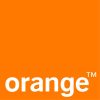
Orange Romania (ORO) is the largest telecommunications provider of Romania, and part of the Orange Group – an international leader in global telecommunications. ORO provides B2B and B2C services to more than 11 milion customers and operates a state-of-the-art 5G Mobile Network, with commercial coverage in 38 cities in Romania. ORO is a trusted provider of B2B services to a large customer base, across business-verticals, and integrates cyber security services, managed networks services, voice and data communications services, and Cloud-EDGE-IoT Continuum Services.
ORO will support the development, and integration of the CASTOR platform, and the validation of the V2X messages transmission over the trust-path-routing CASTOR framework between federated 5G testbeds Use-Case. ORO owns and operats two full-fledged 5GSA testbeds, in 2 major Romanian cities, and provides beyond-5G facilities required for the implementation of the trusted path routing capabilities of CASTOR.
ORO aims to demonstrate a industry-relevant V2X scenario, togheter with partners TUIași.
“Gheorghe Asachi" Technical University of Iasi, Romania
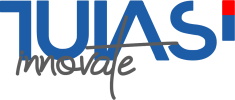
The “Gheorghe Asachi” Technical University of Iasi (TUIASI) is a university of advanced research and education, which conducts activities of creation, innovative utilization of knowledge and transfer to society in the fundamental fields of Engineering Sciences, Architecture and Urban Planning. TUIASI is among the oldest and most renowned public higher education institutions in Romania, with an important tradition in scientific research in engineering. Within TUIASI there are 11 faculties with a technical profile, offering 131 study programs that cover many engineering fields to its almost 14000 students, including computer engineering, electrical engineering, electronics, telecommunications, mechanics, constructions, material engineering, chemistry, industrial design. With its 630 academic staff and 250 researchers working in 24 research centers, TUIASI is focused on knowledge transfer, especially in multidisciplinary areas of high-tech engineering, which produced almost 65% of the Romanian patents, leading to numerous prizes at international innovation contests.
TUIASI brings within CASTOR the experience and infrastructure build from previous projects in collaboration with industrial partners (Continental, Orange) and public administration, related to sensing and perception (computer vision, radio location, Edge signal processing) and communication (5G, C-V2X). TUIASI implements and evaluates together with ORO an use case/ scenario related to V2X enabled Connected Cars and Automated Mobility (CCAM) functions, emphasizing the need for trusted communication paths.
Collins Aerospace

Collins Aerospace are one of the world’s largest providers of aerospace systems, avionics, interior systems and information management services for commercial aircraft. Our solutions deliver enhanced passenger safety and comfort, maximized operational efficiency, secure and reliable connectivity and improved availability, maintainability and sustainability. The Applied Research and Technology team of Collins Aerospace address key challenges of applying emerging communications and computing technologies in the aerospace domain through close collaboration across Collins Aerospace, as well as with leading academic and external research partners. Among a range of interconnected focus areas, they deal with on-aircraft and air-to-ground communications systems for Communications, Navigation, and Surveillance (CNS), Unmanned Aircraft Systems (UAS) and Traffic Management (UTM), trusted computing platforms and cyber-security.
Collins Aerospace contribute a highly challenging use case to CASTOR in the domain of secure airspace monitoring and analysis that we will use to identify, refine and address many of the key challenges that CASTOR seeks to tackle. Collins lead Work Package 6 on Framework Integration and Use Cases Demonstration. Collins are key technical contributors to Work Package 4 and lead the work on state-based mechanisms for device learning (Task 4.1) to capture device behaviour as a Finite State Machine. As a use case provider, Collins contribute to operational requirements for mixed-criticality services (Task 2.1) feeding into formulation of the framework architecture (Task 2.2). Collins contribute to runtime activity tracing analysis (Task 3.3).
ICCS
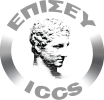
The Institute of Computer and Communication Systems (ICCS), founded in 1989, is the oldest and one of Greece’s largest academic research institutes and the research branch of the School of Electrical and Computer Engineering of the National Technical University of Athens (NTUA). It plays a significant role in advancing Greece’s scientific output, conducting research in areas such as hardware and software, computer networks, digital communications, automation, energy, biomedical technologies, and more. ICCS is known globally for its top-level research, with over 800 researchers and participation in over 4,000 national and European R&D projects. Its research spans several thematic units, bringing together researchers, PhD students, and faculty members in a world-class environment that fosters learning, collaboration, and innovation. In CASTOR, ICCS is represented by one of its research groups, the I-SENSE Group. The I-SENSE Group, one of ICCS’s most dynamic research units, was established in 2002. It employs more than 150 researchers across 10 thematic divisions: Connected Cooperative Automated Mobility, Earth Observation and Environmental Monitoring, Multimodal Logistics & Maritime Operations, Industry 5.0 & Smart Manufacturing, Circular Economy & Tracing, Smart Mobility Applied Systems, Intelligent Networks & Services, Crisis Management and Secure Societies, Health Technologies and Extended Reality. I-SENSE Group is committed to cutting-edge interdisciplinary research and academic excellence.
ICCS holds a leading technical role (two WP5 tasks) in realising the intra-and inter-domain CASTOR policy enforcement for network path selection. Relying on CASTOR optimisation outcomes, the deployed technology ensures that the selected network paths are aligned with trust and resource requirements, utilising toolkits compatible with management of virtualised network functions. ICCS is also heavily involved in the CASTOR integration and technology demonstration work (WP6) while it actively participates in the system requirements work (WP2) and the design of the CASTOR architecture. Beyond technical tasks, ICCS contributes to the CASTOR dissemination task and outreach to the 5G networking community (WP7) supporting the project’s market adoption.
Suite5 Data Intelligence Solutions
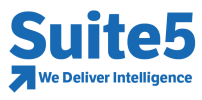
Suite5 is an Information Technology Solutions and Services SME whose mission is to deliver innovative data-driven intelligence solutions through state-of-the art technologies, required for any organization to be placed at the forefront of competition through greater efficiency. By combining strong technology know-how and hands-on approach in managing and implementing projects commissioned by the public and the private sector, Suite5 provides research-inspired solutions and practical support for its clients in order to leverage business and crowd intelligence into their everyday operations.
SUITE5 is responsible for the design and development of the CASTOR Blockchain Infrastructure that will facilitate auditability, certifiability and immutability regarding the operation of the devices that are part of the trust path configurations enforced in CASTOR framework. SUITE5 will also design and implement the smart contracts that will enable the recording of CASTOR security claims in the Blockchain Infrastructure. Moreover, SUITE5 will lead the clustering activities in CASTOR along with the contribution of the project to other International Data Spaces and Marketplaces.
K3Y
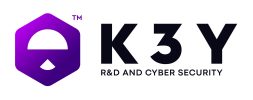
K3Y is a dynamic Small and Medium Enterprise (SME) specialising in cybersecurity and Research and Development (R&D) activities. Founded in Sofia, Bulgaria, in 2018, K3Y primarily serves the European and Bulgarian markets while actively participating in national and European Union (EU)-funded projects. K3Y’s core activities can be categorised into two primary areas: (a) Cybersecurity Services and (b) R&D Activities. In the realm of Cybersecurity Services, K3Y offers four main services: Vulnerability Assessment, Penetration Testing, Purple Teaming, and Cybersecurity Consulting. On the other side, K3Y participates in several R&D projects and initiatives, such as SPIDER, RAINBOW, SwiftV2X, SANCUS, 5G-INDUCE, TREEADS, INCODE, UP2030 and ACROSS.
Within CASTOR, K3Y plays a significant role in the last use case called “Future-Proofing Next-Generation Unmanned Aerial Vehicles Communications towards Critical Infrastructure Sustainability”. In the context of this use case, K3Y delivers drone emulation services and executes the relevant attack vectors that CASTOR will address. More precisely, two scenarios will be demonstrated by K3Y, namely “Alternate Trusted Path Configurations in Drone-to-Drone Communications” and “Distant Location Drone-to-Drone Communication”. Finally, K3Y is responsible for identifying and analyzing the requirements of CASTOR in Task 2.1.
WINGS

WINGS (WINGS ICT Solutions SA) is an innovations company that develops end-to-end digital solutions and transformation for vertical business sectors, integrating diverse devices, edge/cloud backend systems, as well as advanced user interfaces and applications/. Business sectors include Environment (air quality, natural disasters), Utilities and Infrastructures (energy/water/gas, transportation, construction), Production & Manufacturing (food, factories/logistics), Service Sectors (health, education/culture, government, security/defense), as well as Smart Cities. In order to achieve these results, WINGS exploits advanced technologies, such as Artificial Intelligence, Big Data, Cloud technologies, Telecommunication Networks (4G, 5G and beyond, Wi-Fi, Lora, etc.), advanced visualization techniques (Augmented / Conceivable Reality (AR / VR), mobile applications, etc.) aiming to provide extremely reliable solutions that help businesses improve their decision-making processes, expand their knowledge through detailed forecasting and predictive analytics, increase their efficiency and in the end, focusing on customer satisfaction.
In the CASTOR project, WINGS plays a pivotal role as the leader of Trust-aware service orchestration WP (WP5), coordinating activities related to the mapping of intent-expressed SSLAs to CASTOR policies, network and security claims telemetry, and the orchestration and optimization layer. WINGS also contributes significantly to WP6, focusing on the integration of the CASTOR framework and the demonstration of use cases. In WP3, WINGS works on extending security and trust services at the edge, particularly through the trust device interface and management layers that secure interactions with trust anchors across the infrastructure. Furthermore, in WP4, WINGS participates in the development of dynamic and federated trust assessment frameworks, network-aware continuum optimization, and the establishment of secure service level agreements.
Universidad de Murcia

The University of Murcia (http://www.um.es/) is a large University with approximately 36.000 students and 3.500 staff members. The research group participating in this project has experience in security in network infrastructure, trust-based access control systems, secure data sharing mechanisms, as well as privacy-preserving identity management solutions for distributed systems. UMU group has participated in several EU projects since FP5 and now in HE in the different fields with strong expertise in security, privacy and mobility in networks.
UMU will be leading WP2 on UMU Requirement, Methodological Framework & Reference Architecture leading the threat analysis & vulnerability identification. UMU will work on the design and implementation of the distributed trust models and its relation to the policy definitions and additionally, UMU will be focusing on the development of the continuous authentication and authorization mechanisms, will be focusing on the definition of the SSLA data structure and the FAD extensions unlocking the intra-domain trust-aware path negotiations of the CASTOR. Finally UMU will contribute on the dissemination of the project by means of publications and participation of different events and workshops.
Feron Technologies
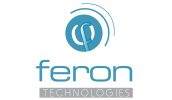
Feron Technologies P.C. is an Athens-based dynamic technology SME with a noteworthy 9-years of specialisation on developing cutting-edge ICT and IoT testbeds, products, and solutions for end-to-end communication/network infrastructure development. Feron emerged from senior researchers coming from academia with the objective to become a point-of-excellence that bridges the gap between research, product development and service provisioning. Feron excels in developing innovative protocols, products, services, and integrating solutions for networks. Its expertise spans 5G/4G/Wi-Fi/IoT & vehicular communication standards and system operation at various levels, from radio access, up to the application design; software development on various domains (embedded, real-time, back-end, front-end) for complex ICT solutions; software defined radios and networks; lab-and field-based experimentation campaign design; security, trust and privacy risk assessment/assurance solutions. In 9 years, Feron participated successfully in more than 17 EU and/or National research and innovation projects.
“Feron brings its expertise in “fast-track” implementation of new Proof-of-Concepts in the automotive domain with a portfolio of virtualized services for CCAM, and V2X including: V2X software modems, network measurement and assessment, radio/network penetration test and vulnerability scanning tools, and real-world experimentation testbeds. Feron offerings also include a dynamic security, trust and privacy risk assessment/assurance tool that relies on an innovative inference engine for cascading threats among assets, entities and ecosystems in the fully interconnected IoT/6G world.”
Commsignia

Commsignia is a research and development company and V2X technology provider specializing in leading software and hardware solutions for customers in the C–ITS domain all over the world. It has been focused on the R&D of radical new communications technologies that span a diverse set of communication protocols, devices, services and applications. As the innovator and driver of the C-ITS communications architecture it has invaluable expertise in multiprotocol design and in secure solutions in the development and production of roadside and vehicle communications technologies, as well as in the integration and setting up of complex real-world deployments in road environments. The company develops standard compliant solutions to autonomous drive technologies and unlocks the full potential of ITS and ADAS systems with cutting-edge SW/HW products and services to improve road safety and efficiency for connected and non–connected road users. Commsignia has provided technology support for test sites and technology validation projects around the world in recent years. CMS is committed to prepare its businesses and customers for the challenges of the future in the 5G/6G cellular communications. Member of the Hungarian standardization board (MSZT). Contributor of the international standardization processes; contributing member of ISO TC204/TC22, ETSI ITS, SAE, IEEE SA, 5GAA and Car2Car.
Commsignia is one of the use case providers of the CASTOR project. The use case implements the methodology, technology and architecture developed by the CASTOR project that will help to extend SOTA practice regarding the use of trustful communication solutions. The use case combines the often misinterpreted concepts of safety, security and trust in a single application and various communication scenarios that connect client devices utilizing advanced high-demand CCAM scenarios. The speciality here is that in CASTOR we extend the concept of trusted path link through multiple technologies and networks. Commsignia is keen on helping project dissemination, and will assist with smooth development, compliance with existing standards, and relevant impact on new ones. Commsignia will implement selected elements of the various trust enhancement technologies validated by the project for connected and autonomous car technologies. Commsignia takes part in the international standardization process; it contributes as voting member in ISO, SAE, IEEE and ETSI and acts in various forms of the technical specification making processes, such as in 5GAA and Car2Car, effectively sharing the knowledge and experience of the CASTOR project.
University van Amsterdam

The Faculty of Science at the UvA is one of Europe’s foremost institutions of higher education and research in its chosen fields of specialization. It plays an active role in international science networks and collaborates with universities and industry. The Faculty has approximately 7,000 students and 1,500 staff members spread over four departments and ten research institutes.
UvA explores using metaheuristics, specifically quantum annealing, to solve the hyperdimensional trust path routing problem in Castor. In the project, UvA leads the task on trust requirement definition, trust-based network optimization, and path establishment with evaluation. UvA also leads the deliverable on a prototype for trust path routing using quantum annealing in CASTOR.
Digital for Planet
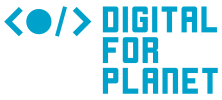
Digital for Planet is a non-profit organisation at work to support the design, development and adoption of innovative digital technologies, systems and solutions empowering people, communities and both public and private organisations to effectively address the major social, economic and environmental challenges humanity must face.
D4P is responsible for overseeing Communication and Dissemination efforts, as well as ensuring compliance with Data Protection, Legal, and Ethical standards.
Through the management of the Communication and Dissemination strategy, D4P seeks to enhance awareness of cybersecurity’s importance across the compute continuum and the efforts done to implement a trusted path routing. This will be achieved by promoting the consortium’s activities through various channels, including press releases, the consortium website, participation at events, training sessions, publications in academic journals, panel discussions, and webinars.
In collaboration with consortium partners and the ethics committee, D4P will also monitor activities to address ethical concerns, ensuring adherence to principles such as confidentiality, integrity, validity, accuracy, transparency, reciprocity, and fairness.
University of Kent
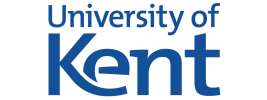
The University of Kent (https://www.kent.ac.uk/) was founded in 1965 and is a research-led higher education institution with more than 19,000 students studying a diverse range of subjects. The University of Kent’s Interdisciplinary Research Centre in Cyber Security (KirCCS) was established in 2012, and since then it has grown into a vibrant centre for security research, with a high external visibility. The University of Kent obtained the prestigious Academic Centre of Excellence in Cyber Security Research (ACE-CSR) recognition from the UK National Cyber Security Centre (NCSC) and Engineering and Physical Sciences Research Council (EPSRC) in 2015-2017 and again in 2018-2023 and 2024-2029. In 2021, the Institute of Cyber Security for Society (iCSS, https://research.kent.ac.uk/cyber/) was formed to build upon the success of KirCCS, in particular to expand its socio-technical security and privacy research theme, into wider areas such as cybercrime, cyber law, online safety, cyber influence and behaviour, digital financial technology, cyber governance and cyber conflict.
The University of Kent will be a main contributor to the design of the trust assessment and trust quantification methodology of CASTOR and of executable policy schemes for continuous authentication, authorisation and data sharing. These are key elements of CASTOR’s innovation on end-to-end network and security policy management (CASTOR objective OB4), continuum-wide trust quantification (CASTOR objective OB1) and continuously monitored intelligent and security-aware continuum state modelling (CASTOR objective OB3).
